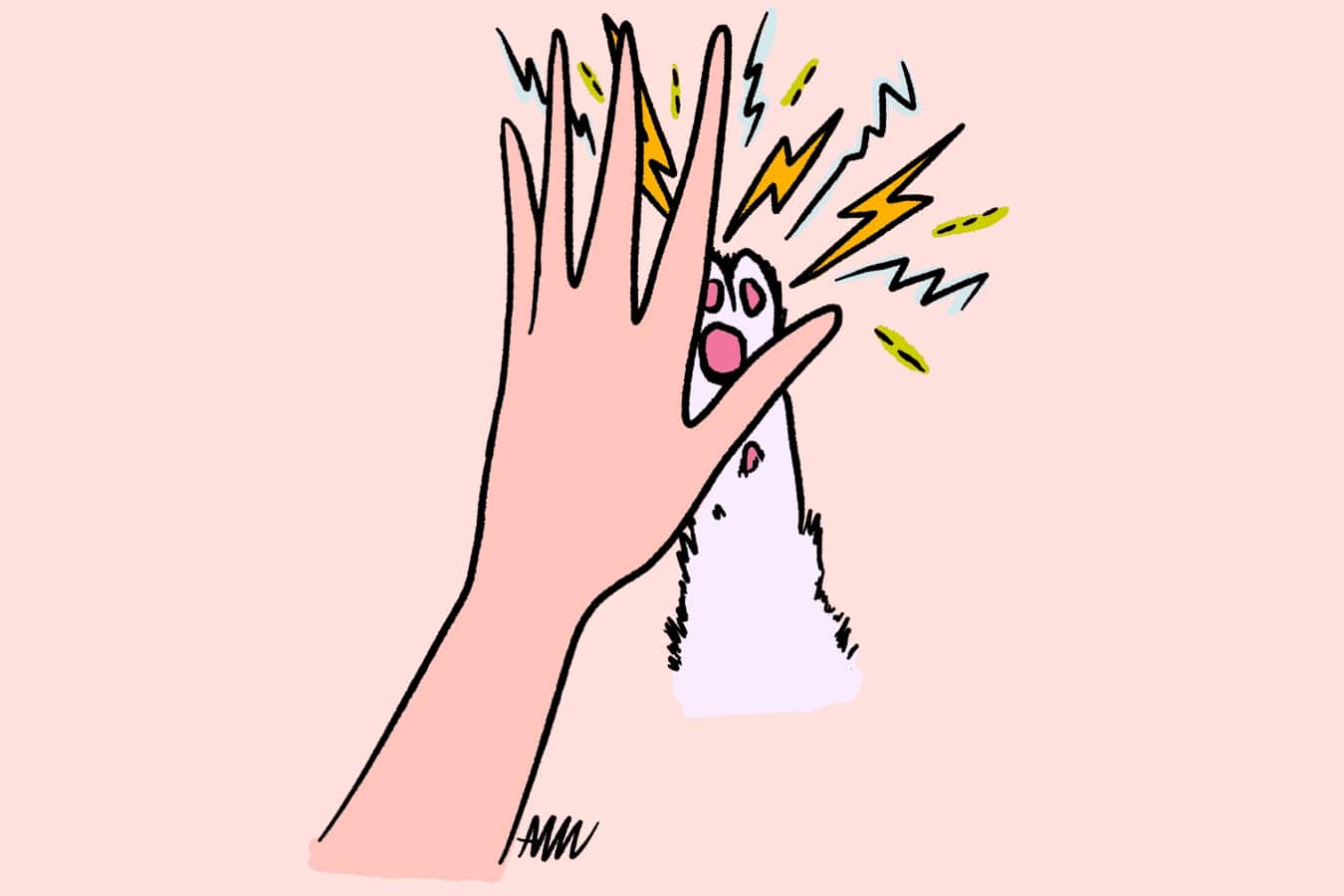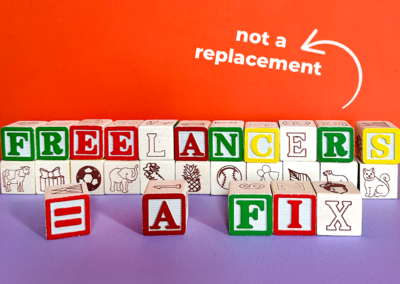“Out with the old, in with the new” couldn’t ring more true at one organization last year. A company that was once run by older white men, now had a younger (white) woman at the helm with a fresh, new mindset, or so it seemed.
We moved from our outdated Gulag of an office into a shiny new space with an open floor plan, and one of those au courant grand staircases with electrical outlets and pillows where youthful employees of different races are expected to gather with their laptops while sipping lattes, and look like they’re posing for Shutterstock office photos. A new company name was ushered in along with the office move.
While tons of positive new change came about, there were also grievances. Last fall, after 16 years with this organization as their Corporate Marketing Manager, my position was dissolved. I wasn’t asked what my interests were. I wasn’t asked about my diverse background. I was simply axed. Though I wasn’t the only one to be on the receiving end of this notice, patterns were recognized. People who had invested their time, experience and knowledge in the organization weren’t met with any creative solutions on how they could evolve their role. Efforts were solely redirected to getting the new brand into tip-top shape.
As my friends and colleagues marveled at how well I’d digested the news of my dismissal, I truly didn’t see it as an end. I thought, “Well, this is the kick in the arse you need. You’ve got a decent severance package that allows you the luxury of time to figure out your next step.” The plan was a two-week vacation at the end of February, and upon return, I’d begin to plot my destiny. I’d roam around the city taking edutational classes that could inspire career aspirations. I’d research companies and determine which ones aligned with my goals. I’d resurrect dream job ideas I’d previously cast aside. Maybe I’d finally pursue that serious acting career I’ve always contemplated. I felt optimistic and energized. And then the “Rona” pulled into the harbor and washed over my grandiose plans. “Look at me,” she mocked. “I’m the captain now!”
After months of Netflixing and chilling, banana bread bake-offs, and powerful protests I directed my attention back to my career plan. A wave of anxiety and fear unfolded as spring turned into summer, and summer into fall. I began to ask myself a series of questions that challenged what I wanted, what I thought I didn’t want, and what I could do. “Should I seek a position in an industry I was very familiar with and a job I could do blindfolded, or do I throw caution to the wind and pivot to something entirely new?” Then, the financial question. “Do I have enough in the bank to support my lofty ambitions?” Before I could move forward I needed to figure out what was best for me. I had to ask myself some hard questions.
1. Why do I really want to change my career?
Identifying whether this is an authentic desire, or just curiosity is important because it’s an investment in time, energy, finances and emotional well being. It will also help tell you how satisfied or unhappy you were with your prior (or current) position.
2. What did I dislike most from my previous role, and what are my hard stops on responsibilities?
This is the time to do a deep dive audit of your experiences and what’s actually on your resume. Do the accomplishments listed reflect what ignites your passion? I’m great at budgeting but I hate math like Elmer Fudd hates Bugs Bunny.
3. How has my industry or job been affected by the pandemic and are their jobs to be had?
Do some research to see which industries were hit the hardest and what’s the timeline for the projected recovery. For example, a recent article in the New York Times stated job losses in NYC were concentrated in five key industries: restaurants, hotels, the arts, transportation and building services — which rely on travel and tourism.
4. Am I ready for the technical preparation involved with a career transition?
Exploring the basic skills or secondary education needed is critical to realize how invested you are (mentally and financially) Doing the research on potential classes, networking or degrees needed is the right first step.
5. Is this the right time for me to make this kind of change – mentally, emotionally and financially?
Coping with the pandemic is not easy on our mental health. Now combining that with a total career change can be exhausting. You should then question if you’re able to afford this transition right now. On the flip side, this does provide a window in exploring financial opportunities that will support your personal investments and future aspirations.
6. What are my strengths and weaknesses?
Recognizing both of these areas are assets in determining what opportunities are possible for you. A Personality test can help uncover pertinent truths about yourself that you were previously unaware of. I scored highest in “empathy,” and I’m now determining how that translates to my career ambitions. The Clifton Strengths Finder Assessment is a great resource for career development. It collects your responses to a series of questions, identifies your strengths and how your strengths influence one another.
7. Is age a factor in a career pivot?
Your 20’s and 30’s are an excellent time for a career change. You still have plenty of time to establish yourself. A career pivot at 50 in our youth-obsessed culture is not for the self-conscious, but absolutely possible. Own your worth. Your maturity and experience is an asset — not a hindrance. Whatever your age, channel your inner cowardly lion. It’s all about courage!
So have I moved forward with my plan? Nope. I’m still weighing my options and that’s okay for my circumstance. Everyone’s journey is different. Do what works for you. Once you’ve answered these 7 questions, review the answers with trusted friends, family and colleagues. It helps to have an objective opinion.
In the end, the decision is yours and yours alone. I leave you with a quote from Madonna, the queen of reinvention, “No matter who you are, no matter what you did, no matter where you’ve come from, you can always change, become a better version of yourself.”
Norman’s Socials: LinkedIn, Twitter
Editor’s Socials – Dominque Dajer: LinkedIn, Twitter, Instagram



